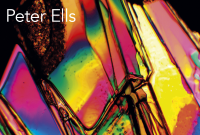
Note on terminology‘Pneumatology’, ‘pneumatism’ and ‘pneumatical’ derive from the Greek word πνεῦμα, which means a blowing or breath. In metaphysics and theology these words have been used in reference to spiritual powers—to an immaterial blowing, as it were. In this book they are used in a different though not unrelated way. Here they pertain merely to powers of self-determination, which makes ‘pneumatical’ an antonym not of ‘material’ but of ‘mechanical’. When one thing acts on another, determining or endeavoring to determine the other thing‘s state, it acts mechanically. It acts pneumatically when it determines or endeavors to determine its own state. While some philosophers have thought that material action is mechanical through and through, and that only immaterial powers could make self-determination possible, this idea is refuted in the present work.
The complete transformation which physical theory has undergone in the last century, and the higher philosophical standpoint implied by that transformation, have had but little influence as yet on the foundations of biology, the science of life.

At the beginning of the nineteenth century many investigators were still treating living matter in much the same way as Plato and Aristotle had treated it, attributing to it a ψῡχή (soul) or πνεῦμα (vital spirit) of some sort. Matter deemed non-living, on the other hand, was conceived as mere mechanical substance. Its motion and gross properties were understood in terms of external forces arising between microscopic constituents. Nowadays, however, just the reverse is true. Whereas souls and vital spirits are rejected in biology, and organisms are conceived mechanically, as products of their genes and environmental forces, in physics mechanism is rejected, and inorganic matter is treated in a more pneumatical way, as something whose motion, indeed whose very being, has an active and internal origin. Thus biology, having followed physics into mechanism, now finds that physics has abandoned that philosophy and returned in some sense to a standpoint that was thought to be discarded once and for all. Mechanism, it appears, constitutes only the first stage in the mature development of physical science, not the last stage, as was commonly assumed. This should also be true of biological science, given the priority of physics to biology. However, it is not the purpose of the present work to reform biology along the lines indicated.
Its task, rather, is to clarify the new situation in physics, to prepare the way for biology‘s reformation. For while the mechanical principles of physics are no longer regarded as fundamental, or as principles properly so-called, the pneumatical character of their successors has been overlooked. Why this is so, and why modern physical theory is sometimes even treated as if it were mechanical theory, making it appear paradoxical and unintelligible, will be explained in due course. Along the way this anachronistic treatment will be rejected in favor of an interpretation that restores intelligibility to physics because it conforms more closely to the current principles of that science.
Having verified the pneumatical character of modern physical theory by examining its origins and principles, we then turn to its significance for philosophy, above all for metaphysics and the theory of human nature.
 Evolutionary psychology and sociobiology pride themselves today on being able to understand what philosophy and religion have allegedly failed to grasp: the nature or essence of
being human. However, if biology itself is not yet fully mature, as our comparison with physics indicates, then any understanding of human nature based on it will very likely be only a crude
precursor to the correct understanding. In that case physics, although it is not usually classified as a life science, may well be able with its pneumatical principles to provide more insight into
the primordial nature of human beings, and of living beings generally, than biology presently can. Ultimately, of course, biology will need to show how its current principles of genetics and organic
evolution follow from a higher standpoint, just as the principles of mechanical physics are now explained by the pneumatical principles that have supplanted them. There is no question, however, that
biology, in order to reach this higher standpoint, will have to model itself once again on the example of physics, and give up that mechanistic and reductionist philosophy which previously served it
well, but which is now out of step with the most advanced scientific investigations. This does not mean that the materialist metaphysic, which underlies every attempt to understand human beings in
natural-scientific terms alone, must likewise be given up. On the contrary, pneumatism, far from contradicting this metaphysic, has in natural science the potential to make it more secure. For while
mechanical action presupposes matter, and therefore cannot explain its existence—an existence that might indeed be primitive and inexplicable, as the ancient atomists believed, but might just as well
depend on the existence of something else—pneumatical action, being internal, is not posterior to matter. A pneumatical physics might therefore be able to demonstrate the absolute self-sufficiency of
material being, and in doing so enable us to conclude decisively in favor of materialism. How it could do this, and whether physical theory should really be given such weight in metaphysical inquiry,
are questions that lead naturally to a consideration of method. Before discussing the origins and principles of modern physical theory, then, let us pause to examine the goals of the present work in
light of the means by which we hope to attain them.
Evolutionary psychology and sociobiology pride themselves today on being able to understand what philosophy and religion have allegedly failed to grasp: the nature or essence of
being human. However, if biology itself is not yet fully mature, as our comparison with physics indicates, then any understanding of human nature based on it will very likely be only a crude
precursor to the correct understanding. In that case physics, although it is not usually classified as a life science, may well be able with its pneumatical principles to provide more insight into
the primordial nature of human beings, and of living beings generally, than biology presently can. Ultimately, of course, biology will need to show how its current principles of genetics and organic
evolution follow from a higher standpoint, just as the principles of mechanical physics are now explained by the pneumatical principles that have supplanted them. There is no question, however, that
biology, in order to reach this higher standpoint, will have to model itself once again on the example of physics, and give up that mechanistic and reductionist philosophy which previously served it
well, but which is now out of step with the most advanced scientific investigations. This does not mean that the materialist metaphysic, which underlies every attempt to understand human beings in
natural-scientific terms alone, must likewise be given up. On the contrary, pneumatism, far from contradicting this metaphysic, has in natural science the potential to make it more secure. For while
mechanical action presupposes matter, and therefore cannot explain its existence—an existence that might indeed be primitive and inexplicable, as the ancient atomists believed, but might just as well
depend on the existence of something else—pneumatical action, being internal, is not posterior to matter. A pneumatical physics might therefore be able to demonstrate the absolute self-sufficiency of
material being, and in doing so enable us to conclude decisively in favor of materialism. How it could do this, and whether physical theory should really be given such weight in metaphysical inquiry,
are questions that lead naturally to a consideration of method. Before discussing the origins and principles of modern physical theory, then, let us pause to examine the goals of the present work in
light of the means by which we hope to attain them.
**********************************************************
David Gunn (b.1967) graduated from the University of Canterbury with a masters degree in physics and a doctorate in philosophy. He has published in the North American journal Philosophy of Science, and delivered conference papers to the Australasian Association of Philosophy. His research interests include the interpretation of physical theory, metaphysics, and the history of philosophy, all of which feature in his forthcoming book Pneumatology of matter. David lives in Auckland, New Zealand.
ISBN: 978-1-78099-175-7, $35.95 / £19.99, paperback, 479pp
EISBN: 978-1-78099-176-4, $9.99 /£6.99, eBook
Throughout history philosophers have posited souls, vital spirits and other active principles in living beings in order to explain their differences from non-living beings. With the arrival of genetics and evolutionary biology, however, it now seems possible to account for these differences without assuming such principles. Living beings are henceforth to be understood mechanically, as products of self-replicating microscopic objects and selective environmental conditions, rather than pneumatically, in terms of active principles. It is very remarkable, therefore, that physics has since abandoned the mechanical model of explanation, which it gave to biology, and returned to the pneumatical model, applying it not merely to living beings but to matter quite generally. The conceptual origins and philosophical significance of this remarkable development are explored in the present work. Part One examines the crucial role played by field theory in the decline of mechanism in physics and its replacement by pneumatism. Part Two discusses the importance of this development for metaphysics and the theory of human nature.
Categories:
0 comments on this article








